The Role of Hair Follicle Counts and Ratios in the Histopathological Assessment of Androgenic Alopecia, Alopecia Areata and Telogen Effluvium: Does Counting 'Count'?
March 2023
in “Human Pathology”
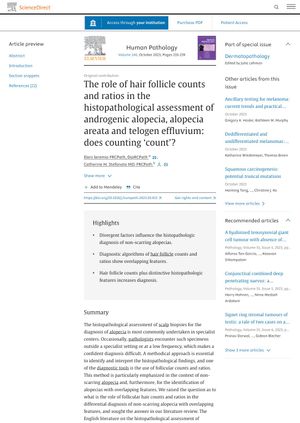
TLDR Hair follicle counts and ratios are helpful in diagnosing hair loss types, but should be used with other specific features for accurate diagnosis.
The document discusses the role of hair follicle counts and ratios in diagnosing non-scarring alopecia, particularly androgenetic alopecia (AGA), alopecia areata (AA), and telogen effluvium (TE). The authors conducted a literature review of English language studies on the histopathological assessment of horizontal scalp biopsies for non-scarring alopecia. The results indicate that follicular counts and ratios are useful diagnostic tools, but they should be used in conjunction with the specific morphologic features of each alopecia subtype to make a confident diagnosis.
View this study on sciencedirect.com →
Cited in this study
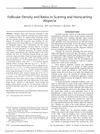
research Follicular Density and Ratios in Scarring and Nonscarring Alopecia
Nonscarring alopecia has higher hair density than scarring alopecia, and hair density can help diagnose the type of alopecia.

research Histopathology of Scarring and Nonscarring Hair Loss
The conclusion is that accurate diagnosis of different types of hair loss requires careful examination of tissue samples and understanding of clinical symptoms.

research An Atlas of Hair Pathology with Clinical Correlations
The book helps doctors better understand and treat hair disorders due to gaps in their training.

research Histopathologic features of alopecia areata incognito: a review of 46 cases
The research found specific signs to diagnose alopecia areata incognito and noted patients generally regrow hair after steroid treatment.

research Histopathology of alopecia: a clinicopathological approach to diagnosis
The conclusion is that accurate diagnosis of different types of hair loss requires good teamwork between skin doctors and lab experts.

research Hair counts in scalp biopsy of males and females with androgenetic alopecia compared with normal subjects
AGA patients have fewer hairs and smaller follicles; T:V ratio above 4:1 may indicate AGA.
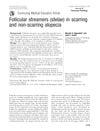
research Follicular streamers (stelae) in scarring and non-scarring alopecia
Hair root sheaths are more common in non-scarring hair loss and help diagnose the type of hair loss.

research The Histopathology of Noncicatricial Alopecia
Different types of hair loss have unique features under a microscope, but a doctor's exam is important for accurate diagnosis.
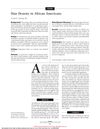
research Hair Density in African Americans
African Americans have less hair density than whites.

research Chronic telogen effluvium: Increased scalp hair shedding in middle-aged women
Middle-aged women with chronic telogen effluvium experience increased hair shedding but usually don't get significantly thinner hair.

research Histopathology of non-scarring alopecia
The document describes how to tell different types of non-scarring hair loss apart by looking at hair and scalp tissue under a microscope.

research Diagnostic and predictive value of horizontal sections of scalp biopsy specimens in male pattern androgenetic alopecia
Horizontal scalp biopsy sections effectively diagnose and predict MPAA, with follicular density and inflammation impacting hair regrowth.

research Hair anatomy for the clinician
Understanding hair follicle anatomy helps diagnose hair disorders.
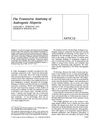
research The Transverse Anatomy of Androgenic Alopecia
The study found that horizontal sections of scalp biopsies are better for analyzing hair loss, showing fewer hairs and more fine hairs in balding areas.
Related
research Sisaipho Alopecia Areata Treated With Tofacitinib and Oral Minoxidil
Tofacitinib and oral minoxidil may help treat Sisaipho alopecia areata.

research Hair disorders
The document's conclusion cannot be provided because the document cannot be parsed.

research Alopecia Areata of the Beard: A Review of the Literature
The document concludes that more research is needed to understand and treat Beard Alopecia Areata due to limited current knowledge and evidence.

research Noninflammatory, Nonpruritic Alopecia of Horses
Some horses lose hair without inflammation or itching due to various conditions, and while mainly a cosmetic issue, diagnosis requires examination and biopsies, and breeding is not advised if it's hereditary.
research Disorders of Hair
The document's conclusion cannot be provided because the document is not readable or understandable.

research Alopecia areata: Clinical presentation, diagnosis, and unusual cases
Alopecia areata is a type of hair loss that can lead to complete baldness, often associated with other autoimmune conditions, and half of the cases may see hair return within a year.